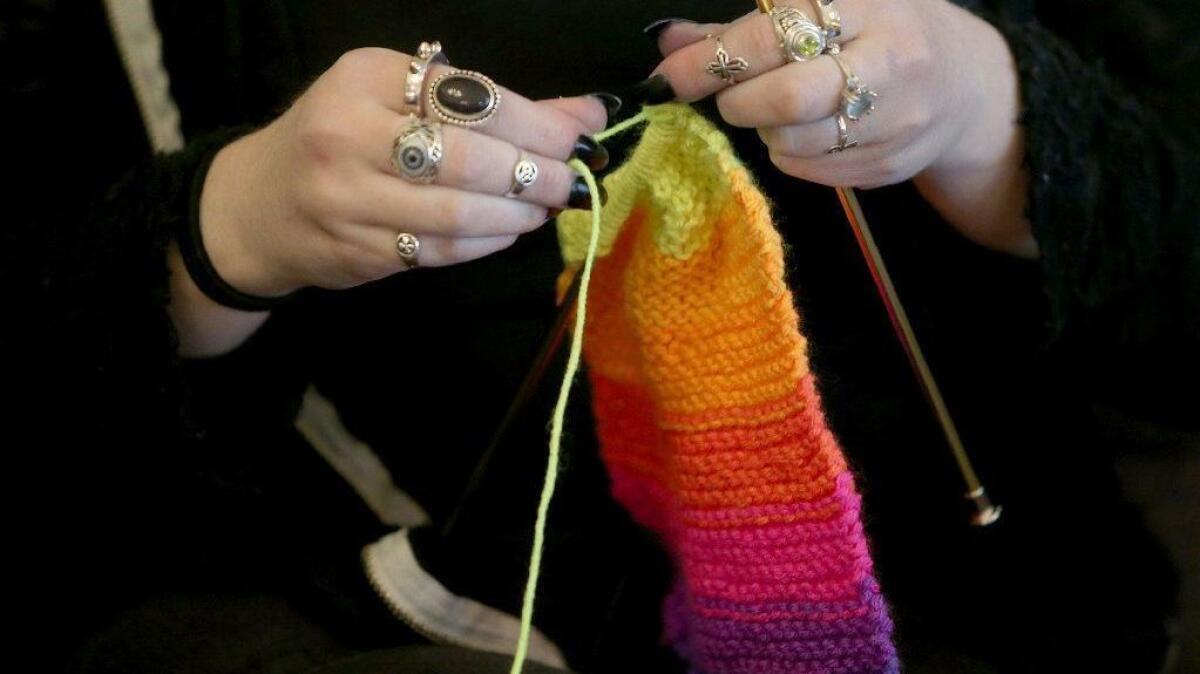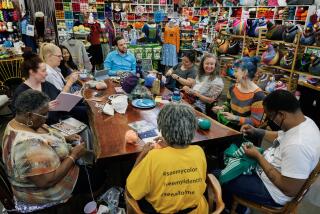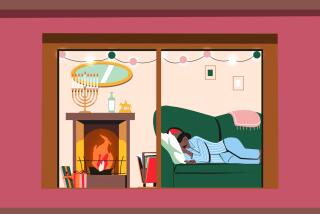Op-Ed: Knitting is my therapy during this pandemic

Weeks before I started sheltering at home, I started to knit a sweater. I’m a dish rag, scarf, hat kind of knitter. As much as I love knitting, the time and patience, not to mention the skill, it takes to knit a sweater elude me. But something about the pullover pattern, knit from the bottom up with chunky yarn, appealed to me. I ordered 10 skeins of baby blue yarn and got to work.
How could I have known that very soon I would be sitting at home all day, every day, with no end in sight? That around 4 o’clock I’d make a cup of tea, put on a podcast warning me not to touch my face or go outside, pick up my needles and knit.
I learned to knit in 2002, six months after my 5-year-old daughter, Grace, died from a virulent form of strep. One day she was leaping across the floor of her ballet studio, the next she was dying in the ICU. In the aftermath of losing Grace, I found myself unable to do the things that had always comforted me: reading fat novels or writing a story; the first helped me to escape, the latter helped me to make sense of the world.
In our “Dispatches From the Pandemic” series, we bring you personal stories from people whose lives have been altered by COVID-19.
Then that October, friends suggested I learn to knit. Desperate for something, anything, to pass the hours while Grace’s big brother was in school and I was alone at home sobbing, I seized on the idea. On a beautiful October day, I walked into a seaside knitting shop and cast on my first stitches of turquoise yarn. So powerful were the effects of knitting — the sound of the needles softly clacking together, the softness of the wool, the rhythm of moving a stitch from one needle to the next — that I bought yards of yarn, and began to knit my way through my grief.
Already binge-watched “Tiger King” and FaceTimed all your friends? Time to learn some handy skills, from cutting your own hair to training your cat to use the toilet.
I have read that the repetitive action of knitting can actually lower blood pressure and heart rates. A study in the British Journal of Occupational Therapy based on an online survey of 3,500 knitters found that the majority of them knit for relaxation and stress relief. The more they knit, they reported, the calmer and happier they felt. The psychologist Mihaly Csikszentmihalyi has described the effect of knitting and other crafts as a “flow” state, a perfect balance between skill and challenge.
In the past few weeks of social distancing, my husband has started to join me on the sofa with a skein of Irish yarn and two needles. He is a novice knitter, still pulling his stitches too tight and losing some. But it doesn’t matter. These are times when knitting can help us through.
From the safety of your very own living room, you can order yarn and needles, watch knitting tutorials, move stitches from one needle to the next, almost like some of us move the beads of a rosary in prayer. Knit for all the storms coming our way. Knit to soothe your frightened self. Take a deep breath. Knit.
Ann Hood, a novelist, is the author of “The Knitting Circle” and “Comfort: A Journey Through Grief.”
More to Read
A cure for the common opinion
Get thought-provoking perspectives with our weekly newsletter.
You may occasionally receive promotional content from the Los Angeles Times.











